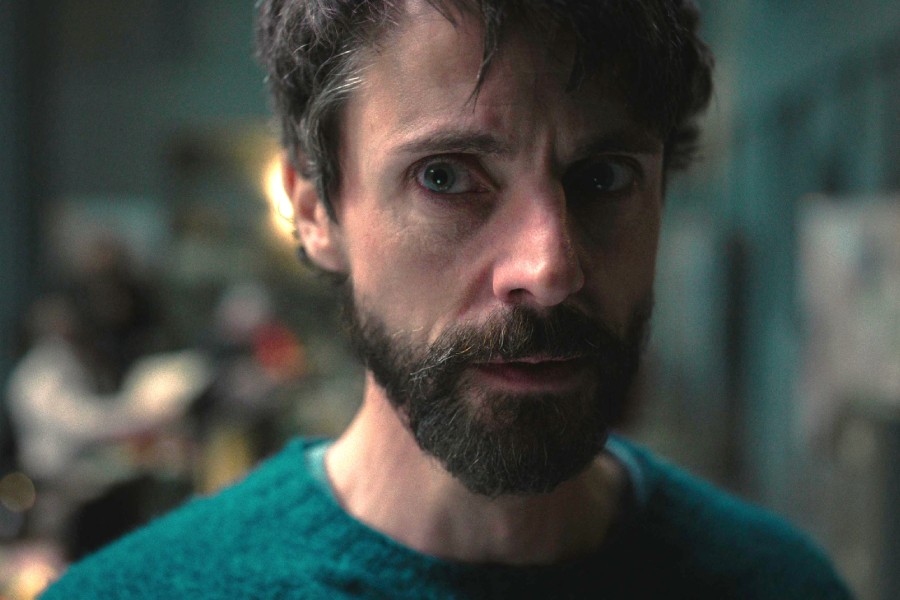He’s got the personality of a bruised elbow, the social skills of a malfunctioning toaster, and a moral compass that’s equal parts rusted and rigid. He doesn't want your company, your questions, or — God forbid — your optimism.
Meet Carl Morck, Scotland’s most reluctant crime-solver and the crown prince of the grumpy, damaged detective. As the brooding heart of Dept Q, Morck isn’t just solving cold cases — he’s carrying on a grand, scowling tradition of detectives who hate mornings, meetings, feelings, and — frequently — themselves. He is the latest in a long line of miserable, magnetic crime-solvers who act like being handed a murder file is a personal insult, and yet they’re the only ones who ever actually solve anything.
If you’re wondering why television keeps handing badges to barely functioning men, and women, with unresolved trauma and zero social skills, the answer is simple: we love them.
Mind at War
At the heart of this archetype lies contradiction — immense intellectual capability wrapped in emotional disrepair. They're not superheroes. They are us — only sharper, sadder, and somehow still standing.
John Luther, played by Idris Elba, embodies this perfectly. Violent, guilt-ridden, and often walking the edge of legality, Luther doesn’t work in spite of his inner darkness — he works through it. His psychological turmoil allows him to access the twisted logic of the killers he hunts. He doesn't just chase monsters; he sees himself in them.
The same can be said for Kenneth Branagh’s Kurt Wallander, whose slow decline into depression is inseparable from his investigative gift. His deep melancholy — more burden than badge — makes him a conduit for justice in a world seemingly bereft of it. His empathy is his liability, and his power.
This archetype works because their dysfunction isn’t decoration — it’s the engine. It’s not that these characters are damaged despite being good at their jobs — it’s that they’re good because of it. Their brokenness lets them recognise the cracks in others.
In True Detective’s first season, Rust Cohle (Matthew McConaughey) is a broken philosopher hiding behind cynicism, pain, and enough existential dread to fill a dozen pulp novels. His darkness isn’t the cost of his insight; it is his insight.
Harry Bosch, by contrast, is an old-school moralist. Played with granite intensity by Titus Welliver, Bosch is constantly fighting a system more concerned with optics than justice. He’s weary, solitary, and scornful of power, but his code is unbreakable.
Meanwhile, Scandinavian noir gave the archetype a fascinating twist. Saga Norén from The Bridge is emotionally distant, socially blunt, and likely neurodivergent. Her trauma is hinted at, but never melodramatised. Her methodical brilliance and interpersonal failures create both tension and admiration. And Sarah Lund, in both Danish and American versions of The Killing, is the embodiment of obsessive sacrifice—so consumed by the work that it erodes every personal connection she has.
Dysfunction in Every Flavour
What makes this archetype so compelling is its range. “Damaged” isn’t one-dimensional — it spans neuroses, trauma, addiction, and grief. It can be brutal, funny, or quietly devastating.
Take Adrian Monk in Monk, whose OCD is both his greatest hurdle and his greatest gift. The show walks a tightrope between comedy and tragedy, showing how Monk’s obsessive routines are shaped by unresolved grief — and how they allow him to see what others can’t.
Or Sherlock Holmes as reimagined in BBC’s Sherlock — a high-functioning sociopath who’s brilliant because he’s emotionally disconnected. His abrasive genius is magnetic, but it also reveals a man fundamentally at odds with human intimacy.
Even in shows like Broadchurch, we see evolution. Alec Hardy is not just grumpy — he’s physically unwell, emotionally vacant, and spiritually tired. Played with aching restraint by David Tennant, Hardy solves cases not because he’s inspired, but because justice is the only thing keeping him upright.
Marcella Backland of Marcella takes it further still. Plagued by blackouts and barely repressed rage, Marcella often teeters on the edge of being part of the very chaos she investigates. Her instability is terrifying, but it’s also what makes her unforgettable.
And then there’s Catherine Cawood from Happy Valley, possibly the most grounded and real of them all. Played with steely exhaustion by Sarah Lancashire, Cawood isn’t a genius savant or philosophical loner. She’s a tough, sarcastic cop juggling grief, family dysfunction, and small-town brutality. Her damage isn’t romanticised — it’s cumulative. Catherine isn’t broken in a flashy, self-destructive way. She’s worn down by the weight of everything she’s had to carry — and still, she carries it.
The Appeal of Imperfection
The appeal of these grumpy, damaged detectives runs deeper than just a love of moody lighting and trench coats. It is because they're real. Not literally (we are not solving murders while emotionally unravelling) but emotionally, they reflect how many of us feel — exhausted, disillusioned, and still trying. These characters offer a type of hope that's hard-earned. It’s not the clean victory of the superhero, but the messy, imperfect perseverance of someone who keeps going because the alternative is giving up.
And maybe that’s why Carl Morck, in all his repressed Scottish gloom, feels so timely. He’s not offering easy answers or tidy arcs. He’s offering the quiet reassurance that broken people can still do good work. That you can carry your pain and still fight for justice. That being a mess doesn't mean you're not needed.











